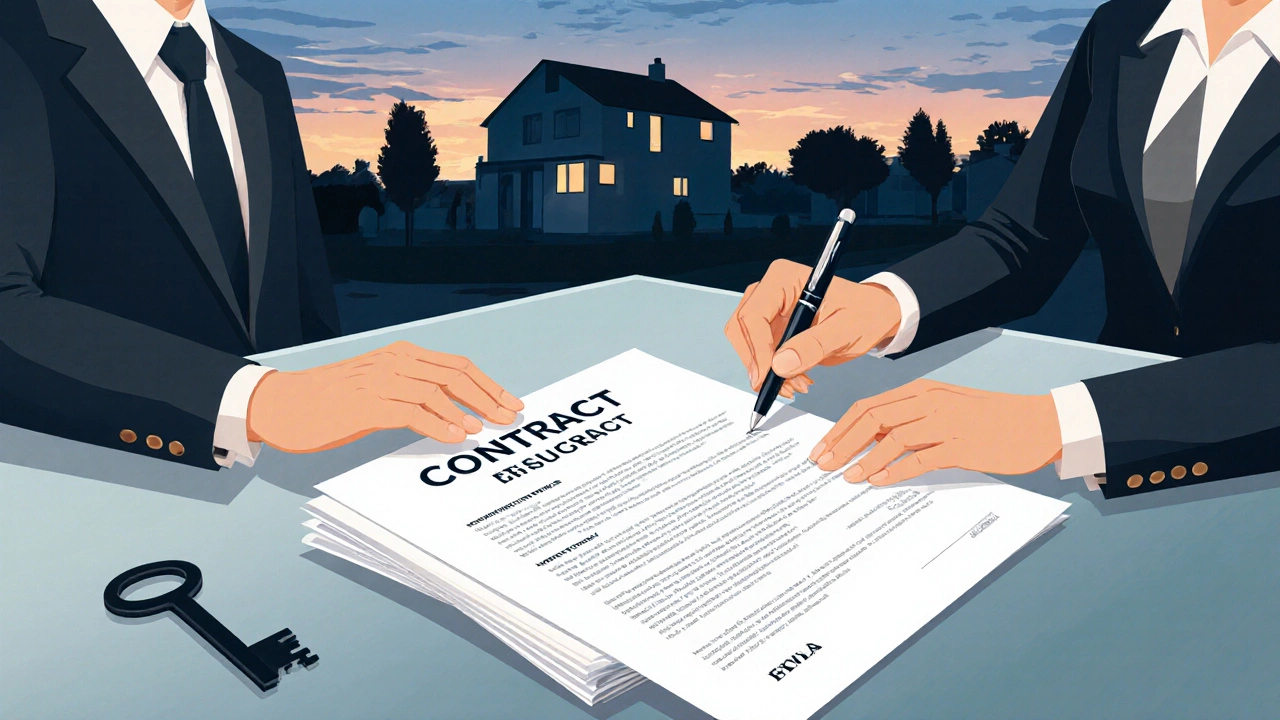Home Buyer Budget Calculator
Your Home Budget Calculator
Calculate how much you can afford to spend on a home before talking to estate agents.
When you start looking for a home, Estate Agent is a licensed professional who represents sellers and helps buyers navigate the property market. Knowing how to talk to estate agent effectively can save you time, money, and stress.
Why Good Communication Matters
Estate agents hold the keys to the latest Property Listing. They decide which homes you see first, when you get a Viewing Appointment, and how quickly offers move. A clear, confident dialogue shows you’re serious and helps the agent prioritize your needs over hobbyists who drift in and out.
Prep Work Before You Pick Up the Phone
- Set a budget range - include mortgage pre‑approval limits and a safety cushion for taxes and moving costs.
- Write down must‑haves (number of bedrooms, school zone, transport links) and nice‑to‑haves (garden, solar panels).
- Research the Real Estate Market in your target suburb - average price, days on market, price trends.
- Know your timeline - when do you need to move in?
Having this info ready turns a vague chat into a focused conversation, and the agent can instantly filter listings that match your criteria.
First Contact: Phone Call or Email?
Most agents respond fastest to a brief, polite email that includes:
- Your name and contact details.
- A short intro - e.g., “I’m a first‑time home buyer looking in Auckland’s North Shore area.”
- Key criteria - price range, bed/bath count, preferred suburbs.
- Any flexibility - are you open to off‑market properties?
If you call, follow the same script. Introduce yourself, state you’re a First-time Home Buyer, and ask whether they have listings that fit your brief.
Questions Every Buyer Should Ask
- How long has the property been on the market?
- Why is the seller motivated?
- Are there any known issues (structural, pest, zoning) you should be aware of?
- What is the typical Commission structure? (Usually 2-3% split between buyer’s and seller’s agents.)
- Can you see comparable sales in the area?
These questions signal that you’re doing homework and help you gauge the agent’s knowledge.
Reading Body Language During Viewings
Even if you’re introverted, paying attention to non‑verbal cues can tell you a lot:
- If the agent hesitates before answering a price‑related question, there may be hidden negotiation room.
- Frequent glances at a phone or watch might mean they have other appointments - keep meetings concise.
- Positive nods and frequent eye contact often indicate they’re confident about the property.
Negotiating the Offer
When you’re ready to make an offer, the agent becomes your conduit to the seller. Here’s a simple flow:
- Submit a written Offer Letter with price, deposit amount, and conditions (subject to finance, inspection, etc.).
- Ask the agent to clarify the seller’s counter‑offers quickly - time is money.
- Use the information you gathered earlier (market trends, comparable sales) to justify any price adjustments.
- If the negotiation stalls, consider adding a small concession, like a flexible settlement date, to break the deadlock.
Good agents will keep you updated at every step, so you never feel left in the dark.

Handling the Paperwork
Once the price is agreed, you’ll encounter contracts, disclosures, and the Conveyancer or solicitor’s role. Ask your agent:
- Which documents need signatures and when?
- Are there any special conditions (e.g., pending sale of your current home)?
- What are the key dates for deposit, finance approval, and settlement?
Having these answers early prevents last‑minute surprises.
Common Mistakes and How to Avoid Them
- Talking too much about personal finances. Keep the discussion focused on the property; let your mortgage broker handle the numbers.
- Assuming the first listed price is non‑negotiable. Most listings have a margin built in.
- Skipping the pre‑inspection. A low‑cost home inspection can uncover costly defects.
- Not clarifying the agent’s exclusivity agreement. Some agents work on an exclusive basis, which could limit your ability to view properties listed with other agencies.
Quick Checklist: Talk to an Estate Agent Like a Pro
- Prepare budget, pre‑approval, and wish list.
- Send a concise introductory email or make a brief phone call.
- Ask the five key questions listed above.
- Take notes on market insights and seller motivation.
- Schedule viewings with clear time limits.
- Use a written offer and negotiate with data.
- Confirm paperwork timelines with your conveyancer.
Estate Agent vs. Buyer’s Agent: Which Is Right for You?
| Aspect | Estate Agent (Seller’s Side) | Buyer’s Agent (Buyer’s Side) |
|---|---|---|
| Primary Loyalty | Seller | Buyer |
| Typical Commission | 2-3% of sale price (shared) | Often 1-2% paid by buyer or built into purchase price |
| Market Access | All listings, including exclusive seller contracts | Focused on buyer‑specific needs, may negotiate better terms |
| Negotiation Style | Pushes price up for seller | Pushes price down for buyer |
| Best For | Clients comfortable with seller‑focused guidance | First‑time buyers wanting dedicated advocacy |
Next Steps After Your First Conversation
Once you’ve spoken to an agent, follow up with a thank‑you email summarising what you discussed. Attach your pre‑approval letter and request a list of properties that meet your criteria within the next week. If you feel the agent isn’t responsive, don’t hesitate to explore other agencies - the market is competitive, and you deserve an agent who’s as eager as you are.

Final Thoughts
Talking to an estate agent doesn’t have to be intimidating. Prepare, ask the right questions, and keep the conversation focused on facts and timelines. With these habits, you’ll turn a casual chat into a strategic partnership that brings you closer to your dream home.
What should I say in my first email to an estate agent?
Introduce yourself, state you’re a first‑time home buyer, give your budget range, list key criteria (bedrooms, suburb, transport), and ask if they have suitable listings. Keep it under 150 words.
Do I have to pay the estate agent’s commission?
In New Zealand the seller typically pays the commission, which is split between the seller’s and buyer’s agents. As a buyer you generally won’t pay a separate fee unless you hire a dedicated buyer’s agent.
How often should I follow up after a viewing?
A quick thank‑you email within 24 hours shows professionalism. If you’re interested, let the agent know your next steps (e.g., preparing an offer) within 48 hours.
When is it worth hiring a buyer’s agent?
If you want dedicated advocacy, market insight, and help with negotiations, a buyer’s agent can add value, especially in competitive markets or when you’re buying out‑of‑area.
What red flags should I watch for during a conversation?
Be cautious if the agent avoids answering price‑related questions, pressures you to act immediately, or refuses to provide comparable sales data.


Corbin Fairweather
I am an expert in real estate focusing on property sales and rentals. I enjoy writing about the latest trends in the real estate market and sharing insights on how to make successful property investments. My passion lies in helping clients find their dream homes and navigating the complexities of real estate transactions. In my free time, I enjoy hiking and capturing the beauty of landscapes through photography.
view all postsWrite a comment